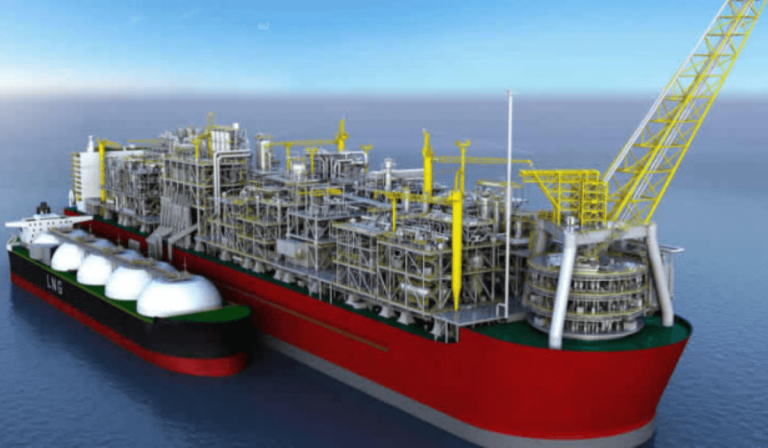… inaugurates Board of Directors
UTM FLNG Limited, the developer of Nigeria’s first floating liquified natural gas facility, has targeted the fourth quarter of 2024 to achieve a Final Investment Decision (FID) on its floating liquefied natural gas project.
The Board of Directors of the company, in its maiden meeting on Tuesday, July 23, 2024, in Abuja, evaluated and approved the progress of the company, particularly the Engineering, Procurement, Construction, Installation, and Commissioning (EPCIC) phase of the project.
In addition, the board of directors directed the company to expedite action on the management and organisational structure to ensure a smooth takeoff of the project’s construction phase.
Speaking at the end of the meeting, Julius Rone, the managing director and chief executive officer of UTM FLNG, assured that the company had laid all processes to ensure a smooth takeoff and targeted production capacity of 2.8 million metric tonnes per annum by the fourth quarter of 2028.
He added that the company is concluding all the necessary approvals from appropriate agencies and regulators.
He said: “The Board met today and evaluated all the processes and progress the company has made in the effort to develop the first indigenous floating LNG in Nigeria and in fact in Africa.
“The board was delighted by the progress made so far, particularly on the EPCIC phase. It directed that the management should ensure the FID is taken by the fourth quarter of the year.
Read also: UTM Offshore expands Floating LPG project, eyes fresh investors
“So, our Company is set for FID before the end of this year and on completion in Q4 2028 it will have a production capacity of 2.8 million metric tonnes of natural gas, 450 metric tonnes of LPG, and other liquids per annum for export and domestic consumption.”
Rone said that this development is a huge step that will leapfrog the economy by ensuring the availability of gas at a lower cost for household, automobile, and industrial uses. “It will also generate massive employment and multi-million Naira business opportunities for Nigerians.”
Rone said that gas resource is a key driver of economic growth and development for Nigeria with nearly 209 trillion cubic feet (TCF) of natural gas reserve which ranks as the ninth highest in the world.
The UTM boss also commended President Bola Ahmed Tinubu for encouraging private investments and creating the enabling environment for companies like UTM FLNG to thrive in the overall interest of the country.
Members of the Board at the meeting include the representatives of the NNPC Ltd led by Olalekan Ogunleye, NNPC Executive Vice President, Gas, Power and New Energy; Salihu Jamari, Managing Director NNPC Gas and Power Investment; while the Delta State Government was represented by Gibson Pinnick, the Permanent Secretary Ministry of Finance.
Other Board members representing UTM Offshore Ltd include MD/CEO of UTM Limited, Julius Rone, Akin Ricketts, Doyin Adelabu, and Sadeeq Mai-Bornu who acted as Protem Chairman of the meeting.
How does floating LNG work?
FLNG technology makes the production, liquefaction and storage of natural gas possible at sea. LNG is transferred directly from the floating facility to specific carriers, for convenient shipping to countries around the world.
Natural gas is produced from underwater fields, then processed and chilled to -162° Celsius (-260° Fahrenheit). This shrinks its volume by 600 times to create LNG. The advanced design of an FLNG facility packs a typical land-based LNG plant into a fraction of its normal size.
UTM Offshore Limited is pioneering the development of the FLNG facility in collaboration with LNG Investment Management Services, a subsidiary of the Nigeria National Petroleum Company Limited.
The facility, a newly built vessel, will receive gas feedstock from an existing offshore facility, treat it to the required LNG standard, liquefy the gas, store the LNG and offload to LNG carriers.
When completed, the floating LNG shall have an LNG production capacity of 1.52 million tonnes per annum (Mtpa), turret and mooring system, gas pre-treatment modules, LNG production modules, living quarters, self-contained power generation and utilities as well as capacities for LNG storage and offloading.
The1.52 Mtpa FLNG facility, with a capacity to process 176 million standard cubic feet of natural gas per day and condensate, will have a storage capacity of 200,000 cubic meters and will be located 60km from the shore of Akwa Ibom State. It was conceived to serve the global energy market.
What it means for Nigeria
The prospect of new foreign exchange earnings from natural gas exports to Europe is why analysts consider the project a game-changer for Nigeria.
“We opted for FLNG because FLNG was originally developed to help realize the promise of natural gas – specifically, to bring gas to the global market from small offshore fields and nearshore terminals in areas lacking infrastructure – especially pipelines,” Rone, CEO of UTM Offshore, said at the deal signing in London on Wednesday.
“UTM Offshore’s signing of the deal will be a game changer within Africa’s gas market. The penetration of FNLG in Africa, which started in Cameroon and expanded to Angola and Mozambique and now to Senegal, Mauritania and Nigeria, highlights Africa’s commitment to unlocking the full exploitation of its gas resources,” said NJ Ayuk, executive chairman of the African Energy Council.
Ayuk said he believes UTM Offshore’s FLNG project development will not only open doors for energy security and GDP growth but will also bring in world-class technical know-how among the local people while creating long-term employment opportunities in line with Nigeria’s local content laws.
The deal, which is being financed by Africa-Exim Bank, is geared to boost export earnings and could dent demand shortages at home with expanded capacity. The FEED contract, according to the project owner, is a step towards a final investment decision expected next year.
